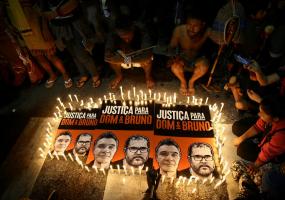Potential Change in Media Discourse on Sexuality in Lebanon
09 Oct 2013
Sahar Mandour, a Lebanese journalist working with the As-Safir newspaper, has written a path-breaking research paper on whether there has been a fundamental shift in the way the media in her country report sexual issues. In her paper entitled Potential Change in Media Discourse on Sexuality in Lebanon: "Cinema Plaza" and Beyond, she starts her analysis with an examination of the 'Cinema Plaza case', when in July 2012 a mainstream TV program aired videos secretly shot in abandoned cinema houses, showing men engaging in sexual acts and viewing pornographic material. 36 men were arrested in a subsequent police raid, and were allegedly accused of "having unnatural sex". The news of the raid was picked by another mainstream TV channel, which surprisingly condemned what it called institutionalized homophobia. Here's how Sahar describes her research: "July 2012 marked a significant transformative event in the Lebanese mainstream media’s discourse on sexuality, an event that even though it did not occur in a vacuum, it felt as if it did. This change can't be located at a precise moment or at one major turning point, but rather it has been an accumulation of changes occurring on three levels: within Lebanese media, within larger socio-political structures, and as a result of progressive activist efforts. In this research, I analyze the development and accumulation in the current media scene that led to this precise televised event in order to understand its fundamental nature: is it a one-time exception, or a marker of a potential change the media discourse on sexuality? An outline is given of the major Lebanese TV channels at the level of ownership/administration, general sets of journalistic values and precisely those relating to sexuality issues. Starting from an account of what came to be known as the 'Cinema Plaza case' an examination is carried out through personal interviews of the existence of a group of young and mid-career journalists/editors, coming from secular and mostly print media backgrounds, who have built partnerships with an active civil society on issues of gender and sexuality. These journalists were directly and indirectly involved in the Cinema Plaza turn of events, and they represent the professional build up around issues of sexuality in the last ten years. The two key questions throughout the research remain: is Lebanon witnessing a radical change in media attitudes towards issues of sexuality? If so, what are the factors that contribute to this change, and those that obstruct it?"


